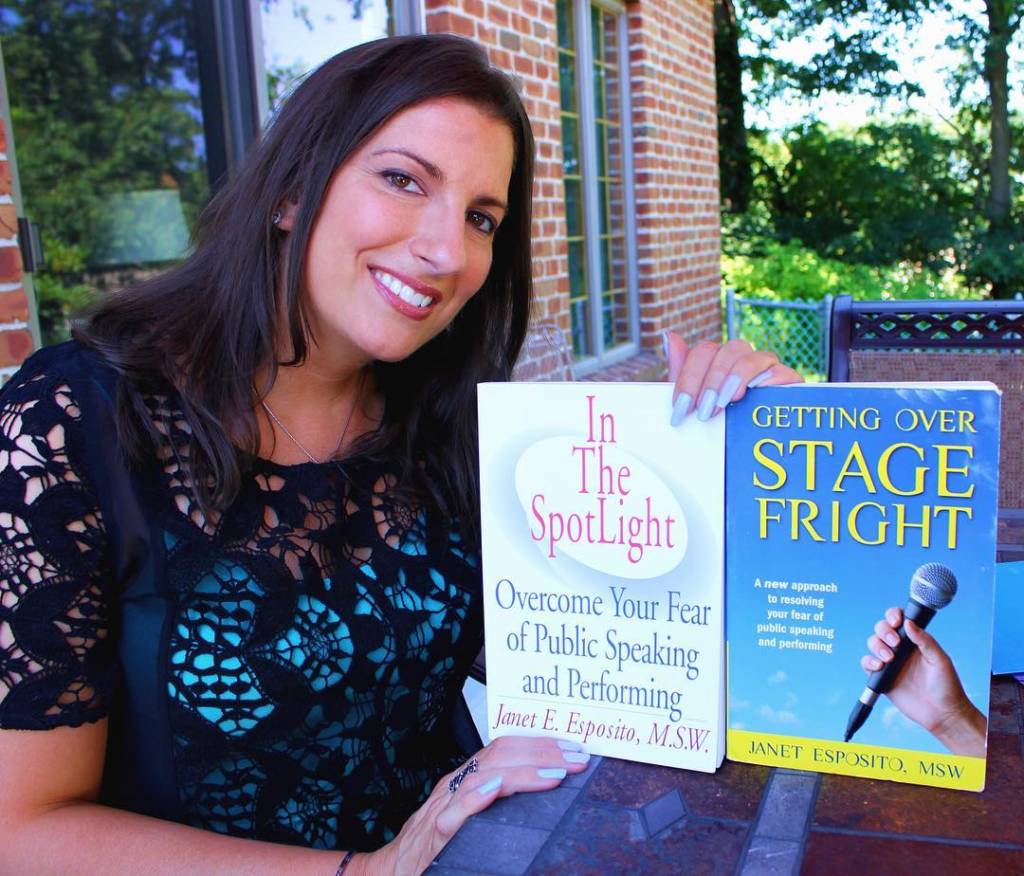I was at a crossroads in my life when I came across Janet’s Getting Over Stage Fright weekend workshop and books. I was running out of hope and on the verge of surrendering to my irrational fear of public speaking. I was in great need of something intense and challenging to help me overcome this fear.
After that weekend workshop in 2010, I finally had hope and left there forever changed. Since then, I have been fortunate to have observed a dozen workshops and have seen tremendous progress in every group.
The workshop and books teach you how to change your entire thought process, resulting in concepts that will change your perspective and relationship with fear. My formerly distorted way of thinking about public speaking/performing has drastically changed and I’d like to share a few examples of the core techniques that I, as well as other workshop participants, have benefitted from the most:
1. The concept of “letting go of the attachment to the outcome” is the realization that nothing is the be all, end all and that it is okay if everything does not go perfectly according to plan. It is the realization we do not need to live up to high, unrealistic standards we set for ourselves in order to feel accomplished.
Don’t put everything into the outcome. Instead, enjoy the learning process of facing fear and realizing that it is acceptable to be anxious and still be able to do a great job. No matter what the outcome, you can challenge the fear and become stronger with each experience. Give yourself credit just for showing up!
2. Understand that your actual performance has nothing to do with you. Rather, it is all about the message that you can offer to the audience. The purpose is to share, connect, and inspire others. If the concern is that others may notice that you are anxious while speaking/performing, think about how they are focusing on what you are saying and not analyzing you or looking for signs of anxiety (which are usually only detectable to ourselves). While we may think our fear is very obvious to others, most often it is not noticed, or not noticed anywhere close to the extent that we think it is.
3. It is important to listen to the way that you talk to yourself! Your self-talk can greatly influence the way you respond to your anxiety. When we provide a soft, encouraging voice when speaking to ourselves, it takes the pressure off and makes us much less hard on ourselves.
Instead of blaming yourself for the anxiety, asking yourself, “What is wrong with me?” and all the other negative thoughts that come along with it, think about what you would say to someone you love going through this, and in what kind of tone.
Also, think about how you would speak to a small child facing a similar challenge. Try to use this same kind, supportive voice with yourself as much as possible.
Overall, I feel that acceptance, self-awareness, and new ways of thinking are the main keys to overcoming the fear of public speaking/performing. It will take time and practice to change old ways of thinking and reacting. With these new tools, we can create positive automatic thoughts over time, causing our minds and bodies to respond to these situations in a much healthier way.



